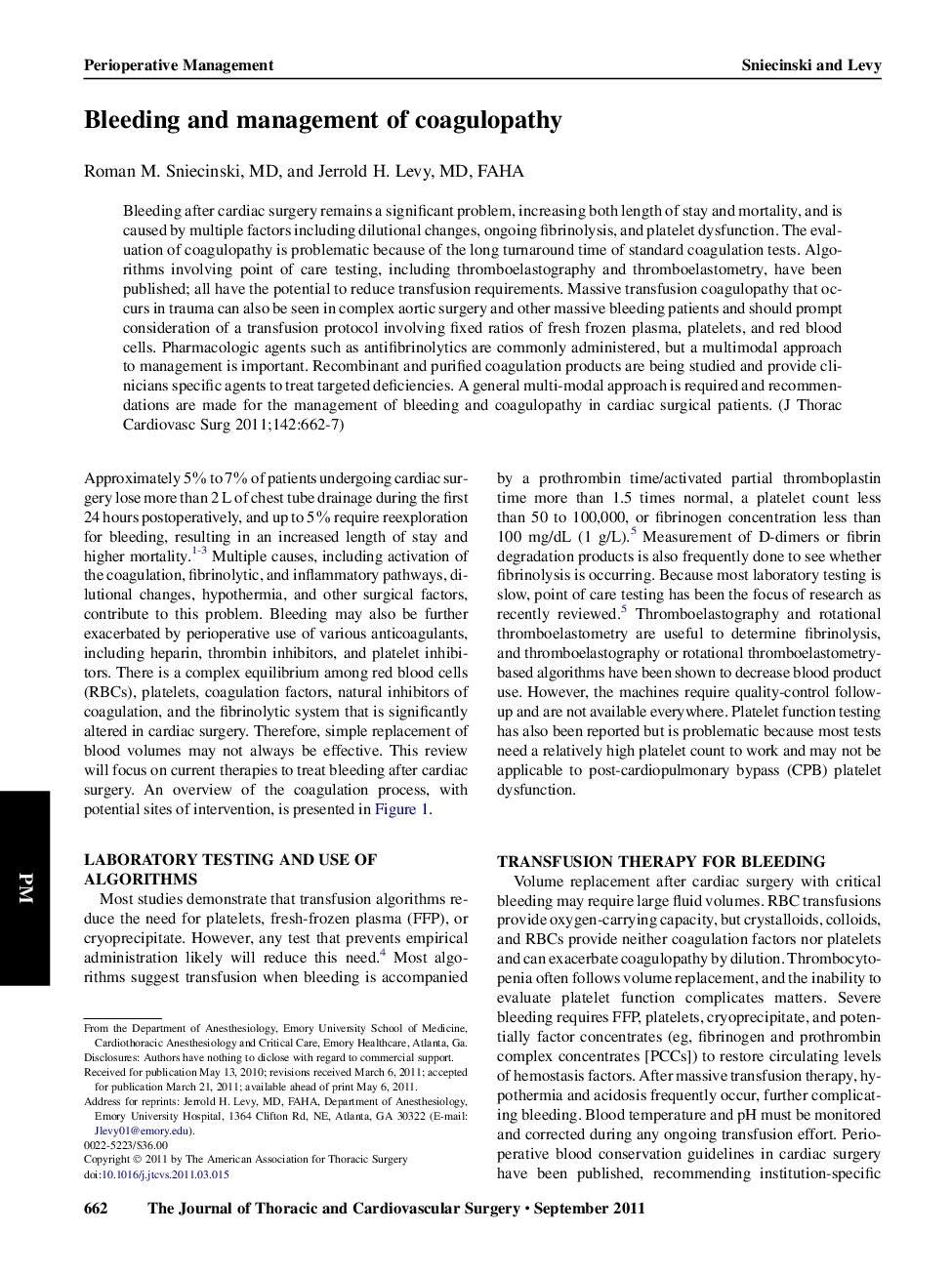| Article ID | Journal | Published Year | Pages | File Type |
|---|---|---|---|---|
| 2982242 | The Journal of Thoracic and Cardiovascular Surgery | 2011 | 6 Pages |
Bleeding after cardiac surgery remains a significant problem, increasing both length of stay and mortality, and is caused by multiple factors including dilutional changes, ongoing fibrinolysis, and platelet dysfunction. The evaluation of coagulopathy is problematic because of the long turnaround time of standard coagulation tests. Algorithms involving point of care testing, including thromboelastography and thromboelastometry, have been published; all have the potential to reduce transfusion requirements. Massive transfusion coagulopathy that occurs in trauma can also be seen in complex aortic surgery and other massive bleeding patients and should prompt consideration of a transfusion protocol involving fixed ratios of fresh frozen plasma, platelets, and red blood cells. Pharmacologic agents such as antifibrinolytics are commonly administered, but a multimodal approach to management is important. Recombinant and purified coagulation products are being studied and provide clinicians specific agents to treat targeted deficiencies. A general multi-modal approach is required and recommendations are made for the management of bleeding and coagulopathy in cardiac surgical patients.
